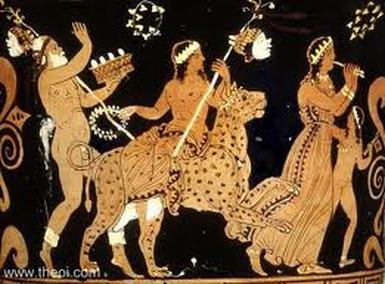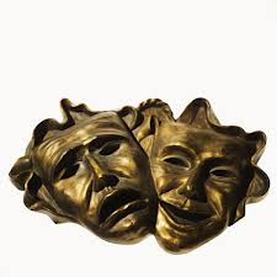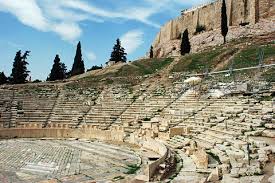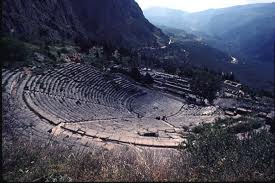Classical Greek Theater
Theater began in festivals honoring Greek gods. One particular god, Dionysus, was celebrated by a festival called City Dionysia. During this festival in Athens, men would perform songs and plays were only presented at City Dionysia festival. Athens was the origin for theater and spread these festivities to promote a common identity. In early plays, actors, directors, and dramatists were all the same person. Later on, only three actors were able to perform in plays. Then, few non-speaking roles were added onstage and because of the limited number of actors, music was largely incorporated. There were three main theatrical forms. These were: comedy, tragedy, and satyr plays. Tragedy and comedy were seen as completely opposite genres while satyrs were used with the mythological subject in a comic way.
Tragedy
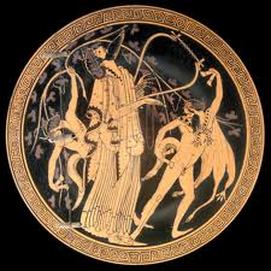
The genre was built around themes of love, loss, abuse of power, pride, and the relationships between gods and men. The plot of tragedy usually deals with the main protagonist committing a crime and realizing it as everything around him falls. The first Greek actor and creator of tragedy was Thespis. Tragedy, in Greek, means goat song. This referred to the goats sacrifice to Dionysus before the plays and to the goat-skins worn by the actors or performers. Thespis’ importance is debated and in sometimes is listed as number sixteen in order of Greek “tragedians”. Aristotle’s poetics hold the earliest known theory about Greek theater. Aristotle says that tragedy went from a song used to praise Dionysus which was then formed into a narrative. He also believed tragedy “cleansed the heart through pity and terror, purging us of our petty concerns and worries”. He believed tragedy’s made people aware that there could be nobility in suffering and called the experience catharsis. The great playwrights of tragedy were Aeschylus, Sophocles, and Euripides.
Comedy
Comedy originated from imitation and has deep roots in ancient Greece. Comedy could be as old as tragedy but the evidence for this genre is very limited as comedy was viewed as a lesser art form until later on. Comedies were mostly satirical and made fun of men in power for their foolishness and vanity. There are not many traces of the origin of comedy but it is known that Aristophanes wrote most of the comic plays. Of all the plays he wrote, 11 plays survived. These skits were being written even before the classical age but officially showcased at the Dionysia between the Persian wars. Comedy attracted attention and gained popularity during the Peloponnesian war to provide relief and an ease to Athenians for the war with Sparta.
Satyr
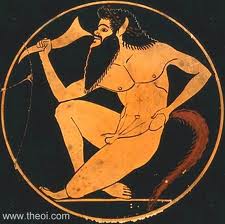
Satyr plays were short performances done between the acts of tragedies. Satyr performances made fun of the characters in the play. The characters were dressed to look half-human, half-goat. These plays were classified as tragicomic or comedy dramas. The contrast of satyrs eased the emotional tension of the tragic plays. With comedy and the more sophisticated Athenian spectators, the need for satyr plays for comic relief grew unnecessary. Only one traditional satyr play survives today; Euripides’ “Cyclops”. However, fragments or other satyr plays have been discovered.
Theatre of Dionysus and Delphi Theater
The home of the festival where drama was born was the theatre of Dionysus. It was built into the Acropolis and used the natural landform to create seating. The structure of it in the classical age has not been determined as it was refurbished in Roman Times. The theater at Delphi was built in 4th century BCE and has been remodeled many times. It has thirty five rows to accommodate about five thousand spectators. The theaters were built in very advanced ways. The structure of the seating for the audience was built so that even the smallest sounds from the floor could be heard.
Aeschylus
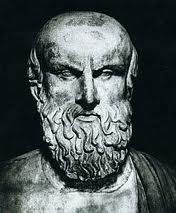
Aeschylus is thought of as the father of Greek tragedy and his many of his plays survived. Some famous ones are The Persians and The Oresteia. After he passed, his place was taken over by Sophocles, Oedipus, and Euripides. He was part of the battle of Marathon and fought successfully against the Persians. Aeschylus introduced a second actor to plays and involved the choir with the plot of the story. He wrote about 90 plays but only seven survived. Aeschylus died in 456 BC, early in Pericles’ careers as a politician in Athens.
Sophocles
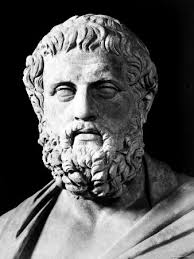
Sophocles is viewed as the best playwright of the time period. He was born about 496 BCE in Colonus Hippius. He studied all of the arts and had an aristocratic education. Sophocles wrote more than one hundred plays, and of those, seven are completely preserved. He got rid of the trilogy form of tragedy and made each tragedy a play of its own. He had to use shorter forms of plays and they were more action-packed. He also changed the significance of tragedy to create more dramatic themes. He still used religion and morality in his plays but used more decision making and fates of protagonists as the more important one. He is known mostly for writing the play Antigone.
Euripides
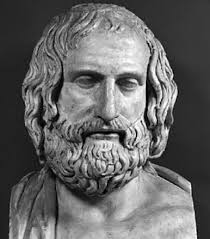
Euripides is known for writing the Trojan War Trilogy, where only the Trojan women survive as. He is also known for other plays important to the roles of women. These plays are The Phoenician Women and The Bacchae. He was born in 480 BCE and died in 406 BCE. He was the youngest of the main playwrights of the classical period. His work impacted Roman Drama and also influenced German and English theater. He held interest in philosophy and science and used these to help his writings and tragedy’s.
Sophia Gonzalez Mayagoitiahttp://www.ancient-greece.org/architecture/delphi-theater.html
http://www.usu.edu/markdamen/clasdram/chapters/061gkthea.htm
http://www.ancientgreece.com/s/Theatre/
http://www.pbs.org/empires/thegreeks/background/24c.html
http://www.britannica.com/EBchecked/topic/525273/satyr-play
http://www.usu.edu/markdamen/clasdram/chapters/061gkthea.htm
http://www.ancientgreece.com/s/Theatre/
http://www.pbs.org/empires/thegreeks/background/24c.html
http://www.britannica.com/EBchecked/topic/525273/satyr-play
